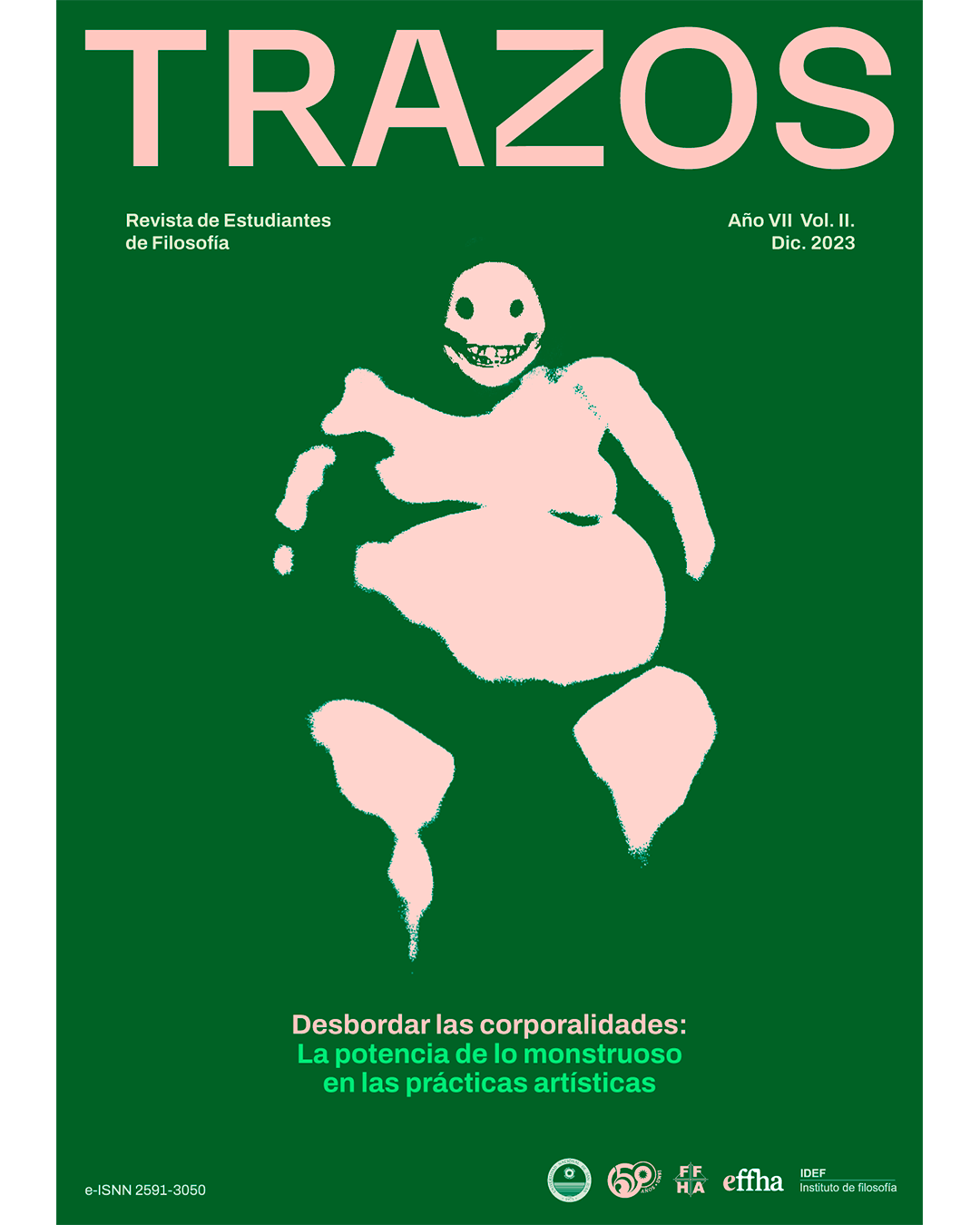Overflws and questions about the monstrous
Main Article Content
Abstract
The monstrous wonders and, at the same time, frightens. In relation to this, we are witnessing a paradox: the system determines what is monstrous without self-perceiving itself as such. ¿Which voices can we recover to face this paradoxical monstrosity? The following article reflcts on this topic. Be part of the question about the monstrosity, about the overflw, the power of transformation that has everything that problematizes the established limits. Contributions of intellectuals, artist and artivist who have inquired about corporalities, their borders and their interdependencies are recovered to delve deeper into this notion and suggest, among others, that of being a monster as a right to claim.
Article Details

This work is licensed under a Creative Commons Attribution-NonCommercial-ShareAlike 4.0 International License.
References
Preciado, Paul B. (2022). Dysphoria mundi. Anagrama.
Segato, Rita Laura. (2018). Contrapedagogías de la crueldad. Prometeo.
Segato, Rita. (19/05/2022). Las estructuras de la violencia: Análisis capitalismo-patriarcado. [Entrevista]. YouTube. https://www.youtube.com/watch?v=IRDyp9_GBe4
Shock, Susy. (2020). Realidades. Poesía reunida. Muchas nueces.
Steyerl, Hito. (2014). Los condenados de la pantalla. Caja Negra.
Valencia, Sayak. (2010). Capitalismo gore. Melusina. España.

